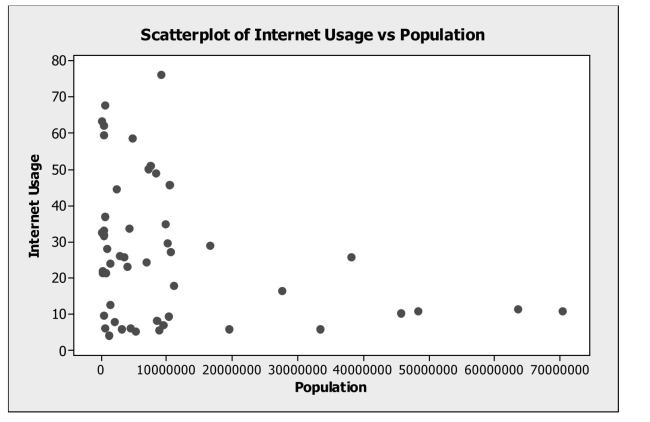Data on internet usage (per 100 inhabitants) and population were collected for a
sample of 52 countries (United Nations database). The data resulted in the following
scatterplot. 
a. Do you think there is a clear pattern? Describe the association between internet usage
and population.
b. Comment on any unusual data point or points in the data set. Explain.
c. Do you think a model could accurately predict the internet usage in India with a
population of 1153230948? Explain
Definitions:
Procedural Rules
Regulations or guidelines that govern the procedures to be followed in court proceedings or other formal processes.
Federal Court
A judicial tribunal established by the United States government, with authority derived from the Constitution and federal laws, to adjudicate disputes that involve national statutes, constitutional issues, and other matters within federal jurisdiction.
State Court
A court that has jurisdiction over disputes pertaining to state laws and constitutions.
Diversity Jurisdiction
A principle in United States federal law allowing federal courts to hear cases where the parties are from different states or countries and the amount in controversy exceeds a specified threshold.
Q2: A recent survey of local cell phone
Q14: A farmer has increased his wheat production
Q15: Referring to Scenario 19-4, what is the
Q15: One division of a large defense contractor
Q15: A real estate agency, located in
Q17: A fast food restaurant just leased a
Q24: A regression analysis of company profits
Q96: Referring to Scenario 18-7, construct an
Q269: Suppose the probability of producing a defective
Q361: From an inventory of 48 new cars